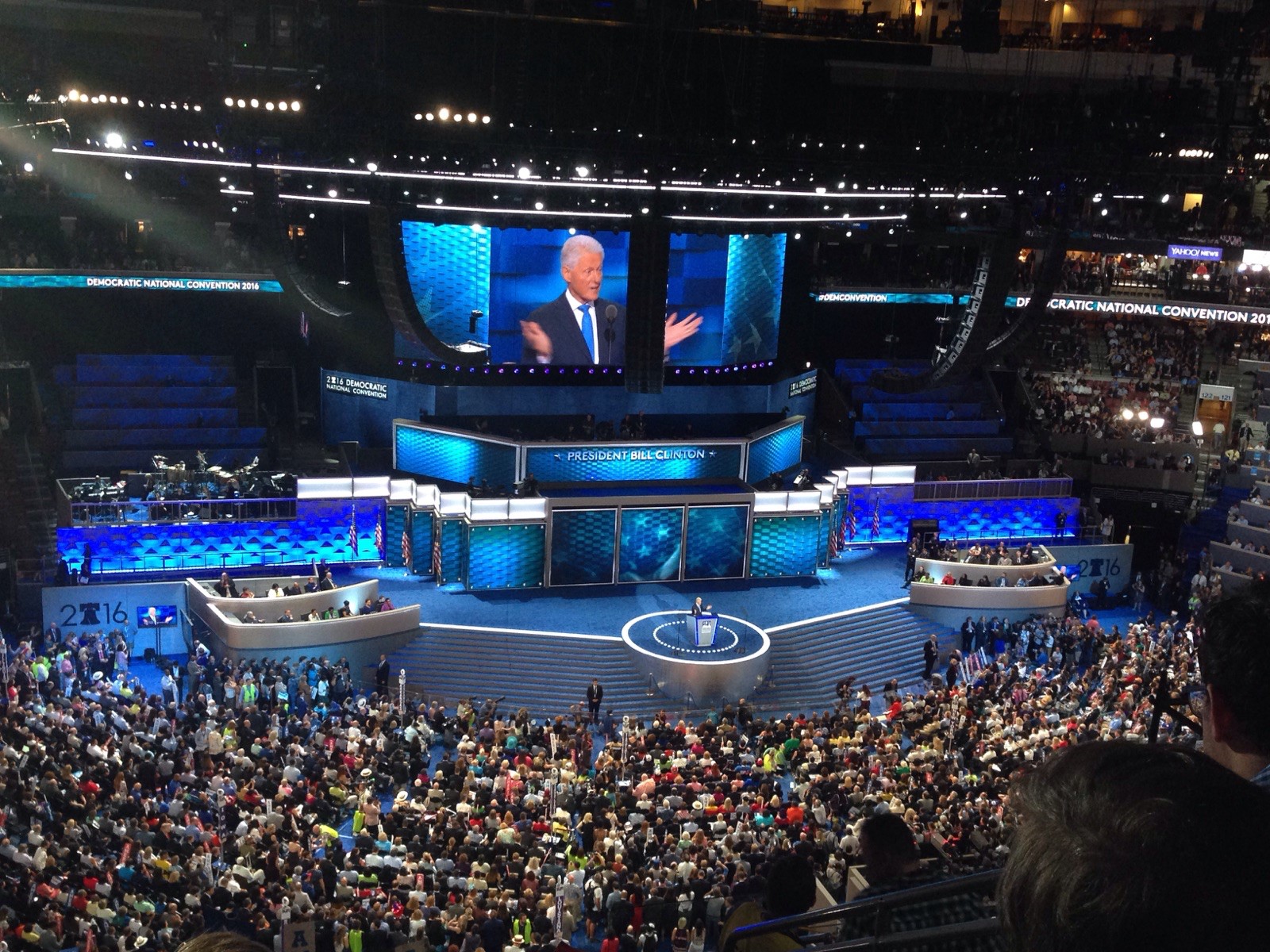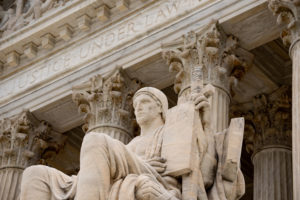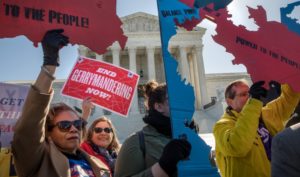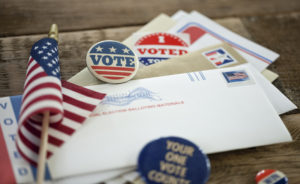
In a unifying vote, Hillary Clinton officially became the Democratic Party’s candidate for President.
By the end of the second day of the Democratic National Convention, Hillary Clinton had become, by acclamation, her party’s official nominee. And yet even that formal unanimity was hardly clear to all at the beginning of the day, as many attendees still wondered whether the division between Bernie Sanders and Hillary Clinton supporters would be able to be bridged.
The rift between the supporters of these two candidates appears not rooted in fundamental policy differences, according to what could be observed on the Convention floor. Nearly everyone in the hall applauded in support of policy proposals mentioned by Convention speakers, whether they were proposals to close the wage gap or reverse the Supreme Court’s Citizens United decision on campaign finance regulation. Yet according to some of the Sanders’ supporters interviewed during the day, their chief hesitancy in supporting Clinton stems largely from their concern about her perceived lack of trustworthiness, integrity, and electability. Some Sanders’ supporters appear to doubt how fervently she will advance the policies they favor.
At the Wells Fargo Center, the two groups of supporters cheered in turn for their candidates as each state and territory cast votes for the nominee. The roll call vote ended with Sanders himself making the motion to confirm Clinton unanimously by acclamation, just as Clinton had done for Barack Obama in 2008. This move was intended to show unity. Although some Sanders delegates did walk out of the Convention hall after Sanders made his motion, afterwards no dissenting voices could be heard in the audience as had been the case the night before.
Following the formal vote and acclamation of Clinton as the Democratic candidate, the rest of the night highlighted what Convention organizers called Clinton’s “Fights of Her Life.” The evening showcased the former Senator and Secretary of State’s record on issues relating to children, social justice, women and families, homeland security, health care, and global leadership.
Dustin Parsons, a teacher from Arkansas, and then former President Bill Clinton, in his keynote address, spoke about Clinton’s advocacy for educational reforms as chair of the Arkansas Education Standards Committee.
Former Attorney General Eric Holder expressed support for automatic voter registration, saying, “You turn eighteen, you’re registered to vote.” This is in the wake of laws, including so-called voter ID laws, that his Justice Department challenged on the grounds that they suppress voting in a racially discriminatory manner.
Several speakers, including Cecile Richards, President of Planned Parenthood Action Fund, celebrated the recent Whole Women’s Health decision, in which the Supreme Court struck down a Texas anti-abortion law that imposed various hospital standards on abortion clinics throughout the state. Celebrities such as Lena Dunham and America Ferrera emphasized equal pay and paid family leave.
Although President Obama signed the Lilly Ledbetter Fair Pay Act, which prevented the statute of limitations from running out on cases of continuous pay discrimination, I asked Gloria Allred, an attorney from Los Angeles and a speaker at the Women’s Caucus, what other legislation would help make pay discrimination suits easier to bring.
She pointed to proposals that would roll back mandatory arbitration clauses. “More and more employers are requiring mandatory arbitration. That means no jury, usually retired judges, and it’s confidential,” said Allred. “We want our clients to be able to have their day in court in a public trial, and we think they are being denied that right, and that hurts employees.”
Howard Dean, a former governor of Vermont and a one-time presidential hopeful himself, stressed health care priorities such as reducing costs, particularly of prescriptions, and expanding coverage. Several speakers noted how, when she was First Lady, Clinton pushed for the establishment of the Children’s Health Insurance Program.
Several other speakers cited achievements they say Clinton made as Secretary of State, including the negotiation of a cease-fire in Gaza, the imposition of sanctions on Iran, and a global agreement over climate change in Copenhagen in 2009.
Almost every speaker extolled Clinton’s personal qualities. A parade of politicians and ordinary Americans testified to her compassion and resolve.
For example, Sybrina Fulton, the mother of Trayvon Martin, stated that Clinton has “the compassion and understanding to comfort a grieving mother” as well as “the courage to lead the fight for common-sense gun legislation.”
Lauren Manning, who survived the September 11th terrorism attacks in New York City, spoke of Clinton role in supporting her and other victims, saying “she had my back.”
U.S. Representative Joseph Crawley of New York called Clinton a “doer of deeds.”
In his keynote address, former President Bill Clinton testified to his wife’s character too, linking her personal qualities to specific policy outcomes. He cited her report on children with disabilities, for example, as part of the impetus for the Americans with Disabilities Act. He also tied his wife’s support to his own successful public career, saying she had encouraged him to run again for public office after he lost the Arkansas governorship in 1980.
The former president also said his wife “has never been satisfied with the status quo in anything.” Hillary Clinton has “always wants to move the ball forward,” he said. “That is just who she is.”
One of the main slogans of the Convention – “Stronger Together” – wove together several of the themes that prevailed throughout the Convention’s second day. Some speakers used the slogan to express support for specific policies, like measures to protect disability rights or proposals to reform law enforcement. Other times they used the slogan to rebuke to Republican nominee Donald Trump, who Democrats view as divisive.
Still other times, the message, “Stronger Together,” seemed to highlight Democrats’ efforts to unite around their now official presidential nominee. Many of Tuesday’s speakers made clear that Democratic Party leaders think that the best path forward will be to come together in support of their new standard-bearer: Hillary Clinton.



